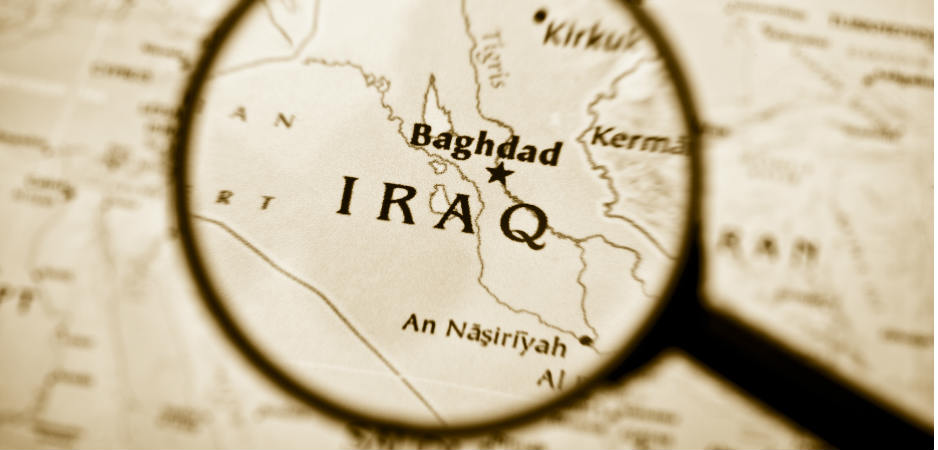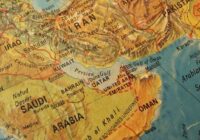The Chilcot report fails to determine why George W. Bush invaded Iraq and thus misses the real reasons Tony Blair followed him.
Sir John Chilcot’s Report of the Iraq Inquiry, which has caused so much anger in the United Kingdom as it details the spurious reasons of why former British Prime Minister Tony Blair led the country to war, fails to answer the question of why US President George W. Bush took the decision to invade Iraq.
As a result, it misses the underlying reason of why Blair chose to join him, and Blair has compounded the confusion by claiming that the world is a safer place because of the decision he took to invade Iraq—a typical self-aggrandizing statement.
Regime Change
The reality is that the policy of regime change in Iraq, by force if necessary, was formulated years earlier by the neocons of the Bush administration—Donald Rumsfeld, Paul Wolfowitz, Richard Perle, Doug Feith and Stephen Hadley among them—who in turn were close to and mightily influenced by the thinking in Tel Aviv.
The strand of Israeli and neocon thinking at the time was that Saddam Hussein was the last Arab leader actively confronting Israel and the last remaining supporter of Yasser Arafat and the rejectionists in the Palestine Liberation Organization (PLO).
Eliminating Saddam’s regime would mean that finally all Arab states would be reconciled to peaceful, if not friendly, relations with Israel, and that the PLO, having lost the last one of its Arab backers, would be forced to negotiate a settlement and, therefore, begin healing the festering sore of the Palestinian-Israeli conflict. A few ornamental sprinkles were added to this by talking up the advantages of removing a monster and establishing a democratic Iraqi state that would act as a beacon of hope and reform to the rest of the Arab world.
The US decision to pursue regime change was entirely independent of the existence of weapons of mass destruction (WMD) in Iraq. Indeed, the decision to pursue regime change by any means was taken long before September 11, 2001: Bush issued instructions shortly after he was elected to plan for Saddam’s removal.
The events of 9/11 added momentum to the policy because Bush, egged on by the neocons and Henry Kissinger, impressed on him that the only effective response to 9/11 must be a US demonstration of its overwhelming power to would-be attackers—and that an invasion of Iraq would serve very well, with all the other benefits Tel Aviv were talking up.
Curveballs
The only thing missing was a casus belli, and the Bush administration cast around for any reason that they could use to justify an invasion. The only one that held water was Saddam’s continued violation of the terms of the United Nations (UN) inspection regime. Stephen Hadley—at the time deputy to then-National Security Advisor Condoleezza Rice—was challenged very early on that an unprovoked invasion of Iraq would be illegal; he erupted with the rebuke that he was not concerned with legality but with policy.
Having settled on using the violation of the UN resolutions and, in a leap of logic, that therefore Saddam must be concealing WMDs as justification, the US asked the Brits to help frame the argument and join the coalition of invasion forces and so add respectability and authority to the public presentation. At this point, the search for any evidence or intelligence to support the theory that Saddam was hiding WMDs went into overdrive.
There was no evidence to support the WMDs claims, and all the intelligence was either tentative or fabricated by the likes of the Iraqi defector-turned-informant known as “Curveball” and many like him. This was a major problem for the strategy of proving noncompliance with UN Security Council Resolution 1441 as the pretext for war.
But war was coming irrespective of proving Saddam’s possession of WMDs, and so Tony Blair was faced with a dilemma: Oppose the UK’s most powerful ally and refuse requests for help, or stick with friends in the belief that such was their power they would win anyway—right or wrong or, as Blair put it in his letter to Bush, “whatever.”
Wrong on both counts.
The views expressed in this article are the author’s own and do not necessarily reflect Fair Observer’s editorial policy.
Photo Credit: Leminuit
 We bring you perspectives from around the world. Help us to inform and educate. Your donation is tax-deductible. Join over 400 people to become a donor or you could choose to be a sponsor.
We bring you perspectives from around the world. Help us to inform and educate. Your donation is tax-deductible. Join over 400 people to become a donor or you could choose to be a sponsor.
Support Fair Observer
We rely on your support for our independence, diversity and quality.
For more than 10 years, Fair Observer has been free, fair and independent. No billionaire owns us, no advertisers control us. We are a reader-supported nonprofit. Unlike many other publications, we keep our content free for readers regardless of where they live or whether they can afford to pay. We have no paywalls and no ads.
In the post-truth era of fake news, echo chambers and filter bubbles, we publish a plurality of perspectives from around the world. Anyone can publish with us, but everyone goes through a rigorous editorial process. So, you get fact-checked, well-reasoned content instead of noise.
We publish 2,500+ voices from 90+ countries. We also conduct education and training programs
on subjects ranging from digital media and journalism to writing and critical thinking. This
doesn’t come cheap. Servers, editors, trainers and web developers cost
money.
Please consider supporting us on a regular basis as a recurring donor or a
sustaining member.
Will you support FO’s journalism?
We rely on your support for our independence, diversity and quality.






